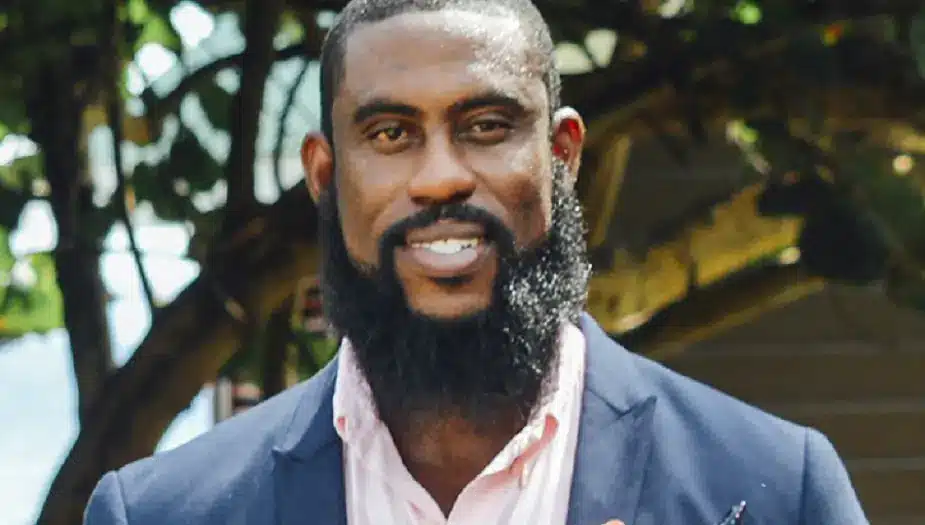Guide Stars Lessons: Who do we blame?
Someone I held in high esteem introduced me to a powerful piece by Charles Osgood. It’s a story about four people named Everybody, Somebody, Anybody, and Nobody. There was an important job to be done, and Everybody was sure that Somebody would do it. Anybody could have done it, but Nobody did it. Somebody got angry because it was Everybody’s job. Everybody thought Anybody could do it, but Nobody realized that Everybody wouldn’t do it. In the end, Everybody blamed Somebody when Nobody did what Anybody could have done.
A few weeks ago, this lesson stared me in the face during my daily commute. I passed a lifeless dog on the side of the main road; a domestic pet, recently struck, with fresh blood at its mouth. My heart went out to the owner, who might have been waiting anxiously for their faithful companion to return home. Each day, I watched the carcass succumb to the elements, bloated by the heat and battered by the rain. It troubled me that no one had moved it, that it was left there to decay as if it didn’t matter.
As the days turned into weeks, I began to wrestle with my own hypocrisy. “Why don’t you move it, Eddy? You call yourself a patriot, someone who loves his country. Why not pull over and give this animal the dignity of a proper burial?” yet I couldn’t bring myself to pull over and do what Anybody could have done. I hardened my heart and drove past, hoping someone else would take care of it. In that moment, I became Everybody; expecting Somebody to do what Anybody could have done, but Nobody did.
This inclination to avoid action in such moments can be illuminated by Soren Kierkegaard’s (kick-ah-god) philosophy of despair of possibility. Kierkegaard explained that individuals often become paralyzed when faced with the burden of choice; not because the act itself is insurmountable, but because it forces them to confront the vast possibilities and uncertainties that come with responsibility. Taking action risks discomfort, failure, or even judgment, while inaction provides a deceptive sense of safety, allowing us to avoid those risks entirely. Kierkegaard believed this hesitation reflects a deeper struggle with our own freedom and agency — a tension between stepping into the unknown and retreating into the familiar. It’s not apathy, but a profoundly human response to the weight of making decisions that challenge us to grow. Recognizing this dynamic, as Kierkegaard suggests, is the first step in learning to navigate it.
This daily confrontation left me grappling with a truth I am still learning to accept: responsibility isn’t something we can defer or pass along; it meets us in quiet, uncomfortable moments, asking for our courage, no matter how inconvenient or trivial the task might seem. I haven’t mastered this lesson; I still hesitate, still falter, still look for reasons why someone else might be better suited to act. But this experience continues to humble me, reminding me that responsibility isn’t an abstract ideal or something to merely admire in others — it is a practice, one that demands effort and honesty, even when we fall short.
It is a universal truth that there is always Somebody to blame. We cling to this convenience like a safety net, trusting in offices, institutions, and sectors to shoulder the weight of accountability. They exist to maintain order, to fulfill duties, to quiet the voices that urge us to take initiative when things go awry. There’s always a department or a title to turn to, always a name to attach to the failure. And so, we allow ourselves the luxury of moral high ground, shaking our heads at the inadequacies of the “responsible” party while absolving ourselves of any obligation to act. It is a subtle but powerful surrender, the belief that as long as the system exists, the burden will never truly be ours.
But what happens when those systems falter? When the frameworks we’ve built to keep the world moving grind to a halt? Will we remain bystanders, anchored by our expectation that Somebody will fix it, or will we step forward to fill the void? Albert Einstein once said, “The measure of intelligence is the ability to change.” Perhaps, too, it is the measure of responsibility, the ability to adapt when the usual channels fail, to shift from expectation to action. Responsibility is not static; it is dynamic, asking us to respond in the moment, to fill the gaps left behind by broken systems. The question isn’t whether failure will come; it will. The question is whether, in those moments, we will rise to do what we can, or retreat into the shadows of inaction, leaving Nobody to bear the weight.
When the systems we trust inevitably falter, what remains is the stark reality of choice: do we act, or do we remain idle? Jean-Paul Sartre’s (Sah-Trah) concept of radical freedom offers a sobering perspective: responsibility isn’t something we inherit from institutions or assign to others; it is the inevitable product of our freedom to choose. To ignore this truth, to wait for Somebody else or blame a failing structure, is what Sartre called bad faith: a denial of our agency in shaping the world around us. In moments of collapse, we are not powerless, we are presented with an opportunity to rise above the inertia of blame and inaction. Responsibility becomes a choice, one that demands courage to step forward and do what must be done, not because it is asked of us, but because we understand that the alternative is to leave the weight uncarried.
A powerful lesson is in here somewhere, one that I am humble enough to admit that I am still struggling to grasp.
After all, the carcass is still there…



